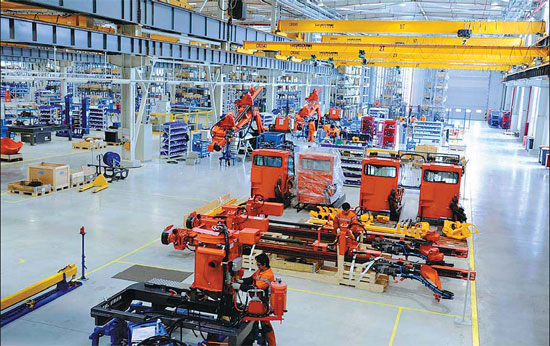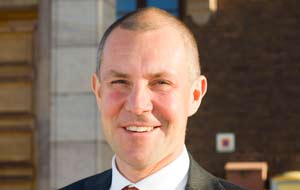
Swedish multinational seeks mergers and acquisitions as it looks to expansion
Sandvik AB's new global headquarters is located in Stockholm's World Trade Center - a modern complex of the sort seen in every modern city, such as New York and Shanghai. It sits alongside the Swedish capital's Central Railway Station.
About a two-hour drive away, the Swedish industrial group's old headquarters was in Sandviken, where it was born 150 years ago and named after the town. The castle-style building is now both the company museum and the headquarters of Sandvik's materials technology business.
|
 |
|
Sandvik AB's global assembly center for mining and construction equipment in Jiading, Shanghai. From 2002 to 2011, the average annual sales growth of Sandvik China was more than 25 percent, with total sales amounting to 7 billion yuan ($1.12 billion) last year. [Photo/China Daily] |
The first batch of outside visitors to the new headquarters were Chinese media representatives because the multinational company regards China as one of its most powerful growth engines amid the global economic downturn, according to Olof Faxander, who took the position of president and chief executive officer of Sandvik last year when he was 40.
The celebration of the 150th anniversary of the company was accompanied by the relocation of the headquarters and a series of changes including restructuring the business, streamlining management layers and expanding the global executive board. Olof, who speaks fast, briefly and in a determined manner, said all of these moves were to "make Sandvik faster-paced, more global and more customer-focused".
Making changes
The relocation of the headquarters is an important step in the company's internationalization. Olof said: "Relocating in Stockholm gives us a much better opportunity to create a top global leadership because it's easier to attract international talent than the small town of Sandviken can."
|
 |
|
Olof Faxander |
Originally an iron and steel company, Sandvik evolved to become a high-tech engineering group with a business portfolio covering mining and construction, materials and tooling. Olof has further divided the three businesses into five units - mining, machining solutions, materials technology, construction and venture.
The fundamental change initiated by Olof is making the corporate organization simpler, and ensuring that "decisions are made closer to the reality that prevails in various markets", he said. The company is creating synergies among IT solutions, human resources issues, logistics and research and development. A decentralized structure previously allowed the three businesses to have their own facilities and be run independently, sometimes resulting in duplicated operations and delayed feedback to, and response from, the group.
According to Anders Nyren, chairman of the board at Sandvik, one of the reasons Olof was chosen to take up his current position was the hope he could "bring some changes, new strategies to the company with its long history".
"If you ask me to mark his performance, it's 100 percent so far," he said.
A financial report on the Stockholm Stock Exchange-listed company shows that its operational profits amounted to 3.33 billion Swedish Kronas ($528 million) from July to September, or 14.2 percent of invoiced sales, compared with 1.67 billion Swedish Kronas and 7.1 percent a year earlier.
However, Europe accounted for less than one-third of Sandvik's total business for the first time in the company's history. Emerging markets have become more attractive.